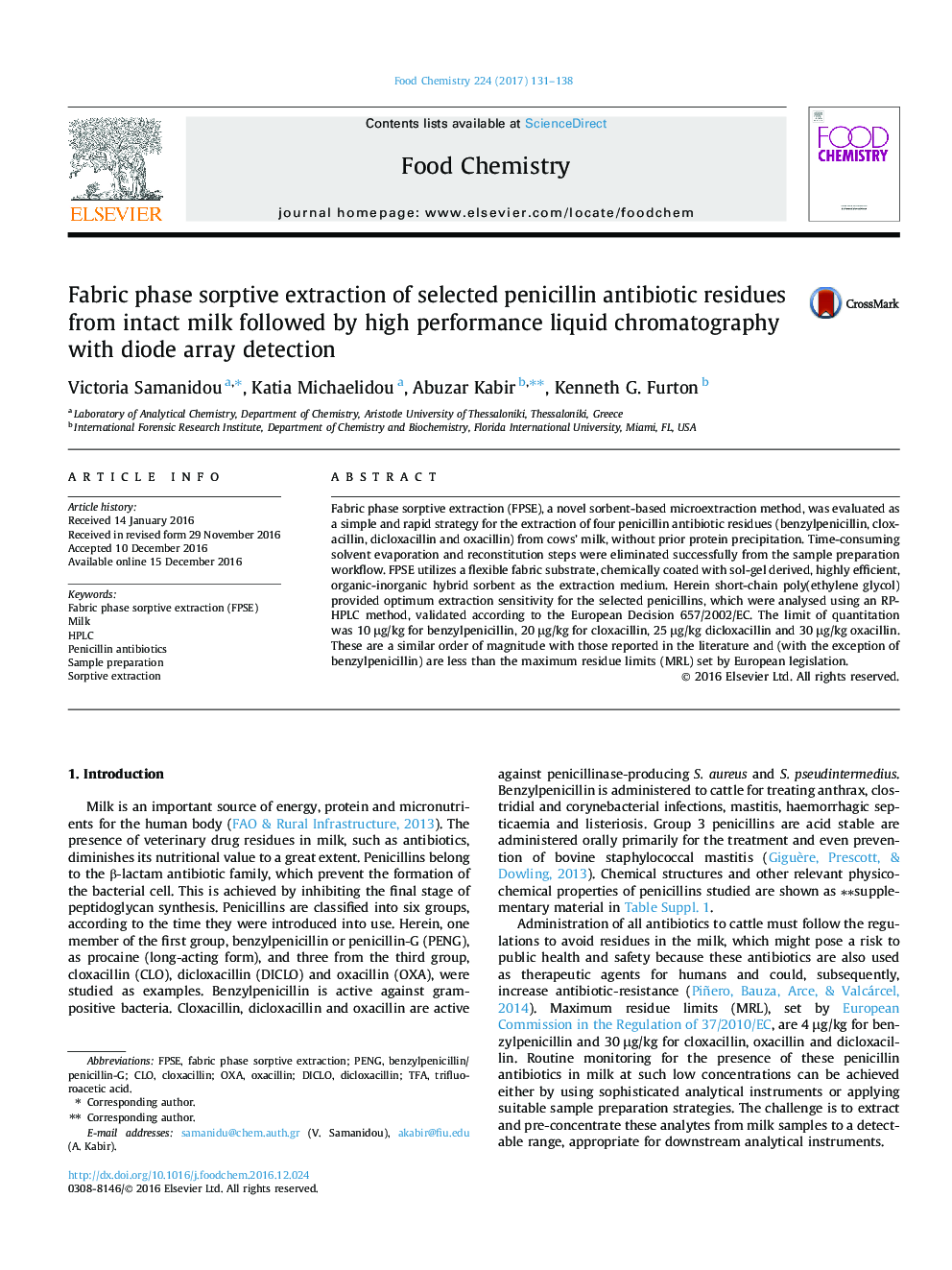| Article ID | Journal | Published Year | Pages | File Type |
|---|---|---|---|---|
| 5133551 | Food Chemistry | 2017 | 8 Pages |
â¢Rapid fabric phase sorptive extraction (FPSE) was applied for penicillins in milk.â¢Protein precipitation was eliminated from the sample preparation work-flow.â¢FPSE simplified sample preparation without sacrificing quality of analytical data.â¢Model driven sorbent selection strategy led to correct phase without experimentation.â¢Robust FPSE sample preparation could be adopted as convenient routine QC practice.
Fabric phase sorptive extraction (FPSE), a novel sorbent-based microextraction method, was evaluated as a simple and rapid strategy for the extraction of four penicillin antibiotic residues (benzylpenicillin, cloxacillin, dicloxacillin and oxacillin) from cows' milk, without prior protein precipitation. Time-consuming solvent evaporation and reconstitution steps were eliminated successfully from the sample preparation workflow. FPSE utilizes a flexible fabric substrate, chemically coated with sol-gel derived, highly efficient, organic-inorganic hybrid sorbent as the extraction medium. Herein short-chain poly(ethylene glycol) provided optimum extraction sensitivity for the selected penicillins, which were analysed using an RP-HPLC method, validated according to the European Decision 657/2002/EC. The limit of quantitation was 10 μg/kg for benzylpenicillin, 20 μg/kg for cloxacillin, 25 μg/kg dicloxacillin and 30 μg/kg oxacillin. These are a similar order of magnitude with those reported in the literature and (with the exception of benzylpenicillin) are less than the maximum residue limits (MRL) set by European legislation.
